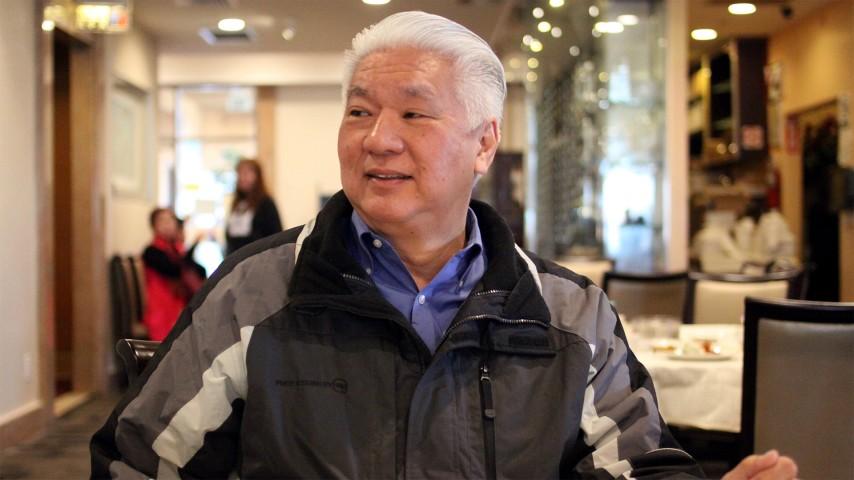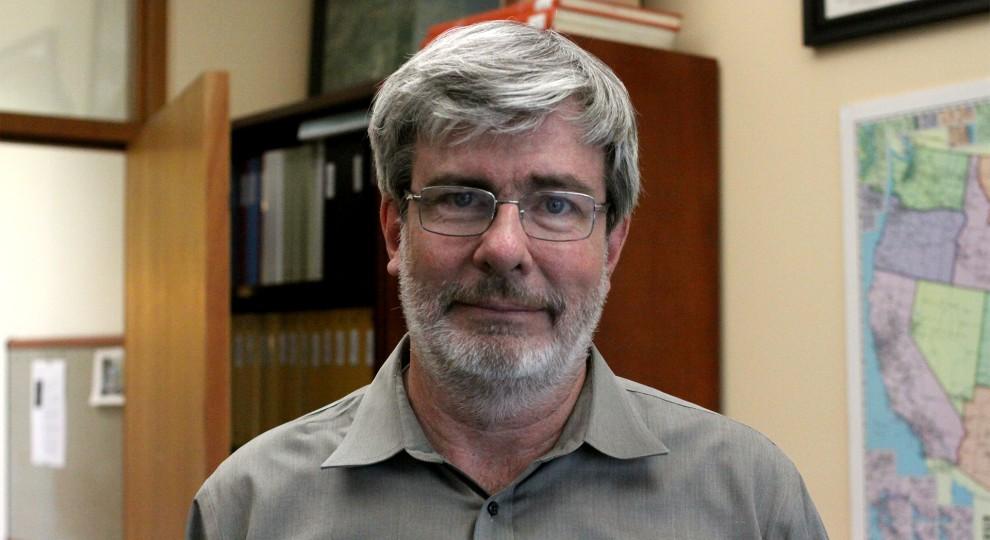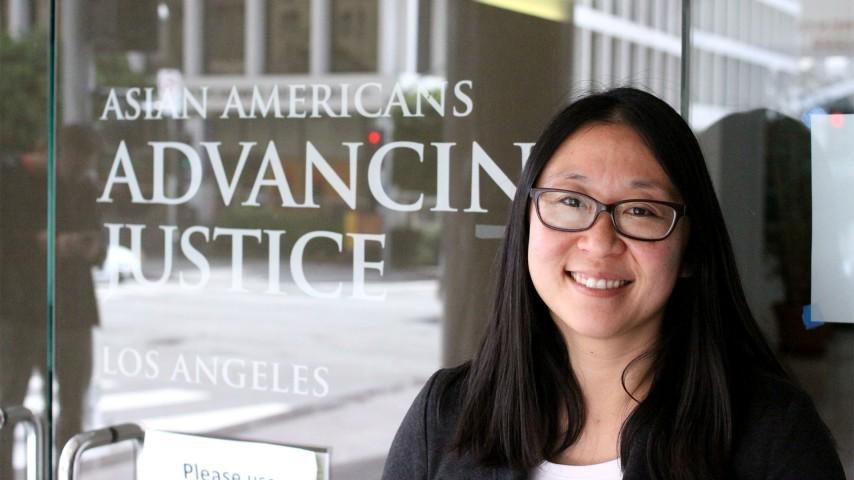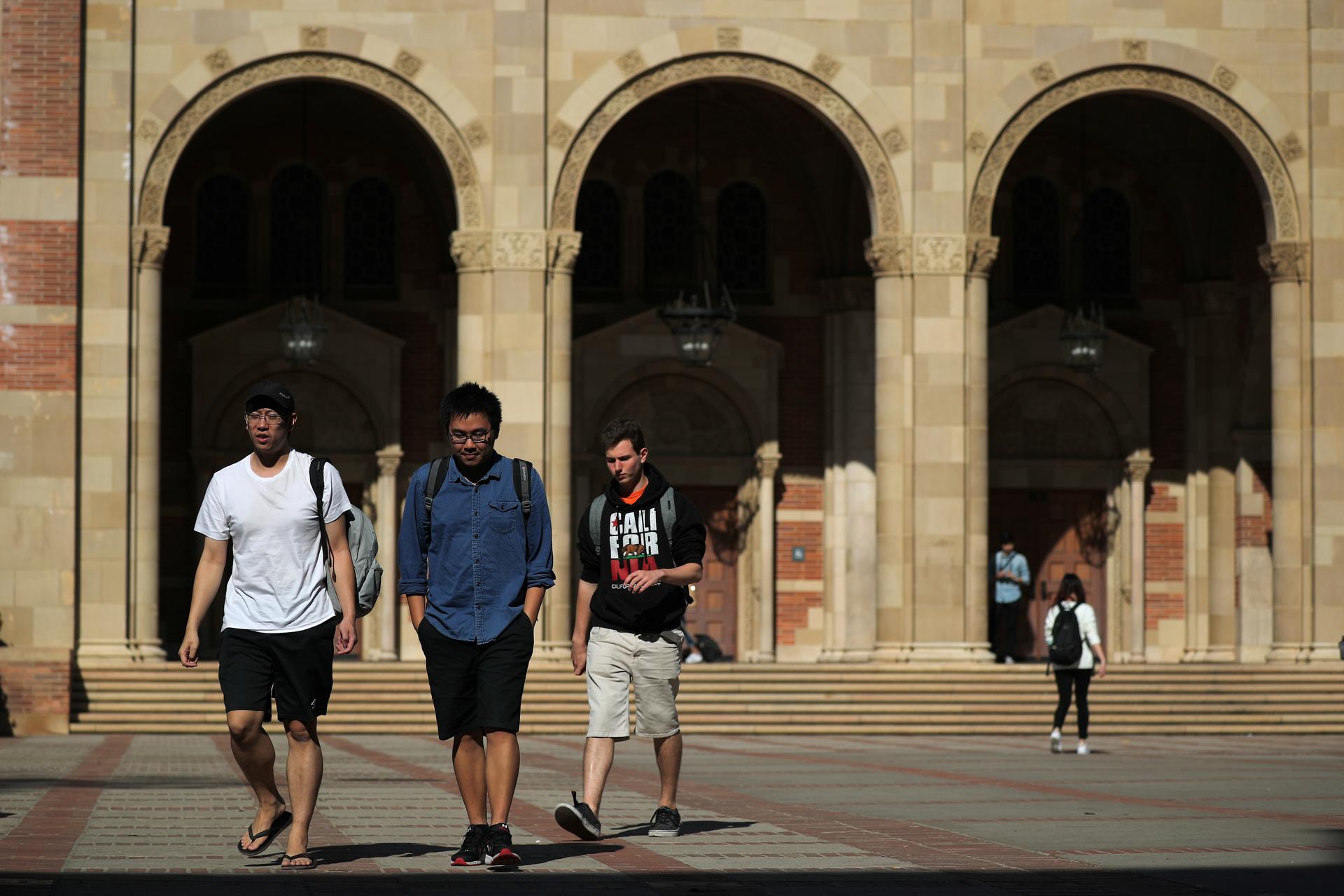As decision nears in Harvard affirmative action case, another legal fight brews in California
People walk in front of Royce Hall on the University of California, Los Angeles campus in Los Angeles, California, Nov. 15, 2017.
This spring, a federal judge will make a decision on a case involving Harvard University and allegations that it discriminated against Asian American student applicants. A lawsuit in California has the state’s largest public university system fighting similar allegations — that administrators are considering race in admissions, even though the practice is banned.
When he was running for California’s state Senate last fall, Republican businessman George Shen often heard from Asian American families convinced they were being discriminated against in college admissions.
“In many of the town hall meetings or public forum, they would bring this up, you know, what will be my position? The more I got involved politically, the more I noticed that people are really concerned about that,” Shen said. He was sitting insidea restaurant in the heart of a Chinatown in the City of Industry, a Los Angeles suburb that’s more than 80 percent Asian American.
Over dim sum and tea, the 62-year-old son of Chinese immigrants who doesn’t have children of his own said he didn’t realize until then that some Asian Americans suspected they were being held to higher academic and personal standards in college admissions.
More: A trial alleging racial discrimination weighs on Asian American college applicants
“We were told if we play by the rule, work hard, we’ll be rewarded,” Shen said. “What we don’t want is having two sets of different rules.”
So after he lost his bid for the legislative seat, Shen formed a group called Asian American Community Service Center, which is helping to fund a lawsuit filed in November against the University of California system by UCLA law professor Rick Sander, a longtime critic of considering race in admissions.
“The longer I work on affirmative action, the more I think that using racial preferences is highly addictive for universities,” said Sander, who wrote the controversial book “Mismatch: How Affirmative Action Hurts Students It’s Intended to Help, and Why Universities Won’t Admit It.” In it, he argues the consideration of race hurts the students it’s intended to help by thrusting them into top programs they may not be academically prepared for.

Several studies have dismissed that idea, countering that qualified minorities do better in more selective schools. But Sander stands by his theory.
“It’s a travesty to admit students without at least providing full disclosure that this is a problem that a lot of students are having,” Sander said. “If you’re going to use preferences, it needs to be with transparency — it needs to be in a spirit of open discussion where we go with what works and we reform what doesn’t work. But we have developed this culture where it is basically taboo to ask questions or criticize, and that’s got to be unhealthy.”
A pending lawsuit against Harvard University in Boston turned challenges over race in admissions towards selective private schools, with Asians instead of whites claiming discrimination. The University of California lawsuit shows top public colleges — which enroll far more students — remain a target.
Unlike the Harvard case, Sander’s public records lawsuit does not specifically accuse the University of California of anti-Asian bias. For now, Sander wants the university to give him troves of admissions data to determine whether admissions officers have secretly considered race in admissions, even though California voters banned the practice in 1996 through a ballot initiative called Proposition 209.
“We’re not suing the university for discrimination,” Sander said. “We’re suing the university for information, with which we want to decide whether there’s discrimination going on. If so, where?”

Sander points to a 2014 admissions study by UCLA sociologist Robert Mare that found Asians are disadvantaged throughout the admissions process.
“What Mare said is that if we control for individual qualifications, African Americans and Latinos are systematically advantaged,” Sander said. “There’s some disturbing evidence of discrimination, which, I think, is very hard to dispute.”
The University of California is disputing that conclusion, however, saying in a statement that it does not consider race, ethnicity or gender in admissions.
The University of California is the largest public higher education system in the country, with 10 campuses and more than 238,000 students. Since the referendum, the university says it has used race-neutral methods, including targeted outreach to certain communities to ensure that its education is accessible to all segments of California’s population, one of the most diverse in the country.
Beyond academic qualifications like grades and test scores, admissions officials also consider personal characteristics, just as Harvard does.
The university says providing Sander with data — and protecting the privacy of applicants — would be too costly and is not required by state law. Administrators estimate that it would take weeks of full-time work to create a specialized data set for Sander.
Both the UCLA and Harvard lawsuits are trying to shine light on the increasingly frenzied admissions processes at universities.
But there’s concern that the Harvard lawsuit could limit colleges’ efforts to ensure students from underrepresented groups have equal access. Opponents of the Harvard lawsuit also point to other practices that give wealthier families an advantage as the real reason for unfairness in the admissions process. Pathways that are both legal and illegal came to light recently after federal authorities announced the indictment of 50 people on bribery, money laundering and other charges, as part of a scheme that allegedly allowed wealthy parents to buy their children’s spots at elite universities.
The public records lawsuit against UCLA has drawn a mixed reaction from Nicole Ochi, a civil rights lawyer in Los Angeles with Asian Americans Advancing Justice. “I do have mixed feelings about this because as a civil rights attorney that is often questioning governmental conduct, I do believe in open access to information,” she said.
Ochi has been representing students who testified in support of Harvard in the discrimination case, which awaits a decision by US District Court Judge Allison Burroughs in Boston. Ochi sees similarities between the two lawsuits.

“Both use Asian Americans as a wedge,” she said. “In both cases, there’s Asian American groups that had never existed before came out of the woodwork to be plaintiffs.”
Ochi also noted both lawsuits challenge the holistic, multi-dimensional approach to college admissions, which the Supreme Court has upheld as a model for the past 40 years. She dismissed the allegation that the University of California intentionally and systematically discriminates against Asian Americans in a state where they make up 13 percent of the college-age population but more than one-third of allUniversity of Californiaundergraduates.
“I think it’s pretty clear that Asian Americans are not being excluded from the UC system,” Ochi said. “Race is not being used to penalize them.”
On the UCLA campus, several students and alumni said that despite Proposition 209, the university should be able to consider race in admissions to achieve greater diversity. Before a jazz concert celebrating the 100th birthday of one of UCLA’s most famous graduates, baseball legend Jackie Robinson, first-year students Marge Zetta Fraser from New Jersey and Sara Taubman from San Francisco said racial and ethnic diversity on campus is very important.
Fraser identifies as black; Taubman as white. They’re teammates on the UCLA gymnastics team.
“Race is a subject that should not matter but has been institutionalized to matter,” Fraser said. “It is almost impossible to look at a person and not consider their race.”
Learn about the debate around affirmative action in college admissions: This college freshman is worried about affirmative action — but not that it will keep him out of Harvard
Taubman said, “At UCLA, it’s so competitive that I think it’s important to make sure all minorities get chances into education, too.” In the Harvard discrimination case, none of the anonymous Asian American plaintiffs testified. During a final hearing last month, Burroughs indicated that was a problem in proving intentional discrimination.
In California, WGBH News asked UCLA’s Sander and businessman Shen to identify Asian American students who claim they were unfairly denied admission based on their race. None came forward.
Shen said that should not matter in this public records lawsuit. “This is a cultural thing,” he said. “Asians don’t like to rock the boat.”
Shen said that he is convinced the University of California system is hiding something. A court hearing to determine the merits of the lawsuit is expected later this year. In Boston, a decision in the Harvard case is expected in the next few months.
